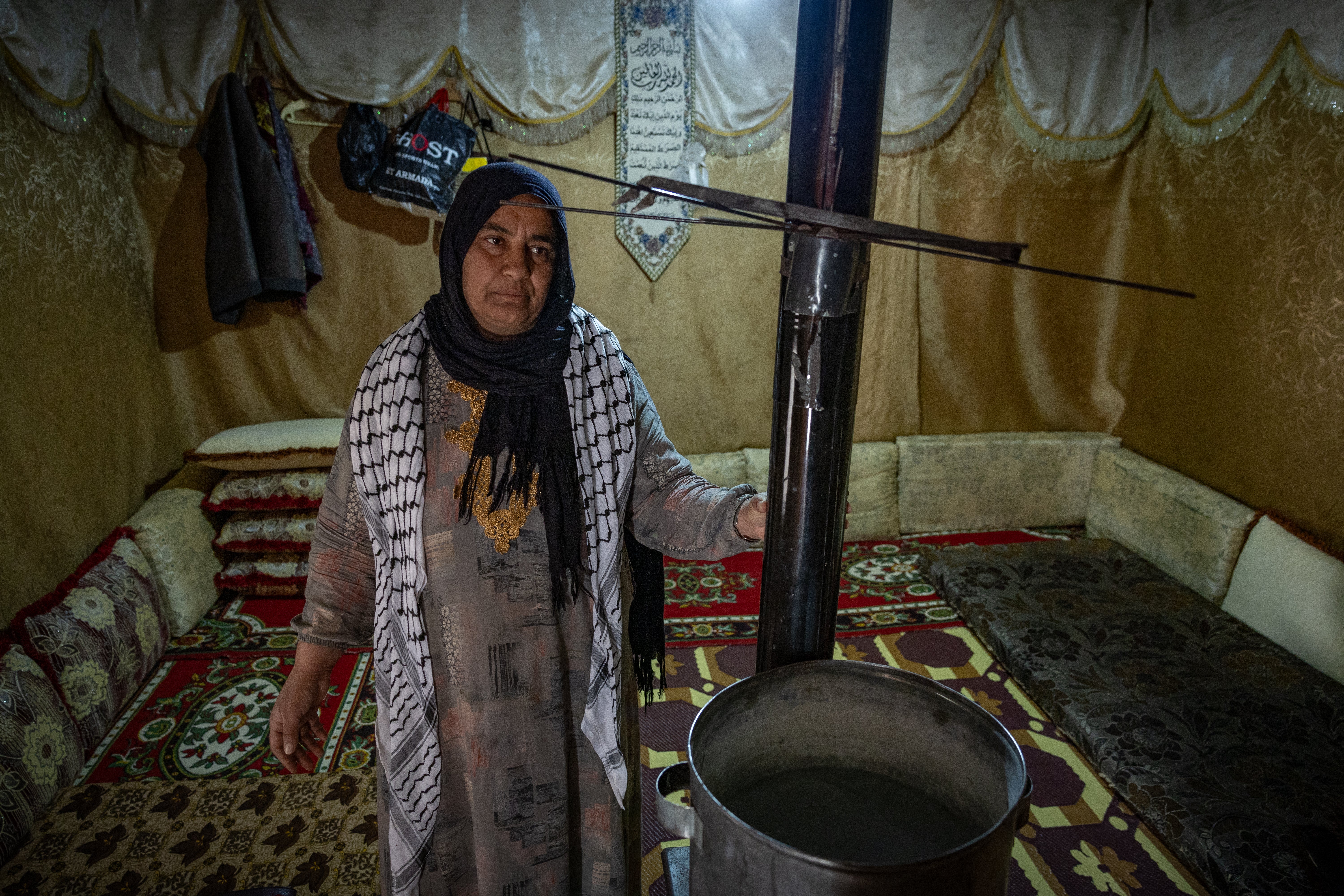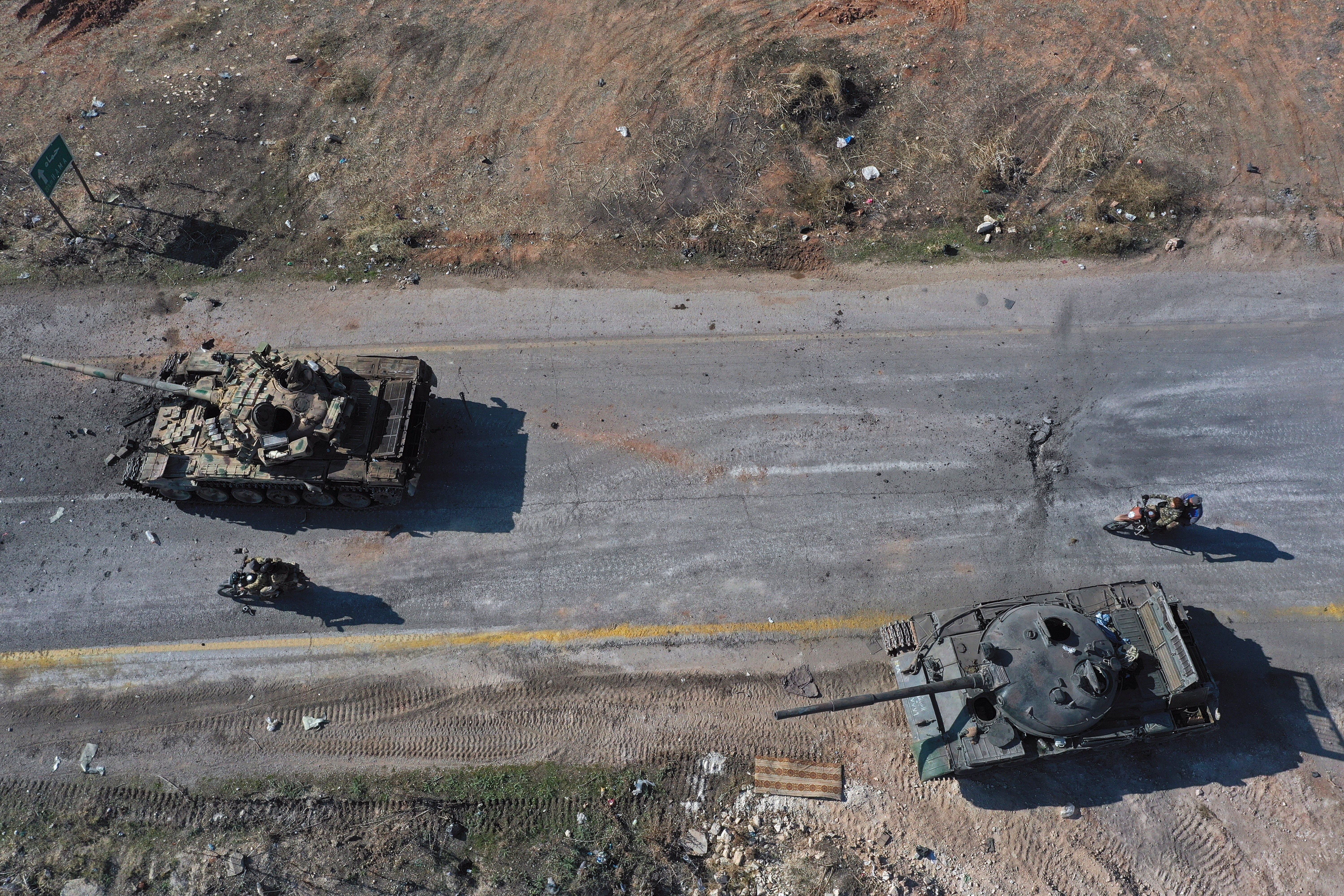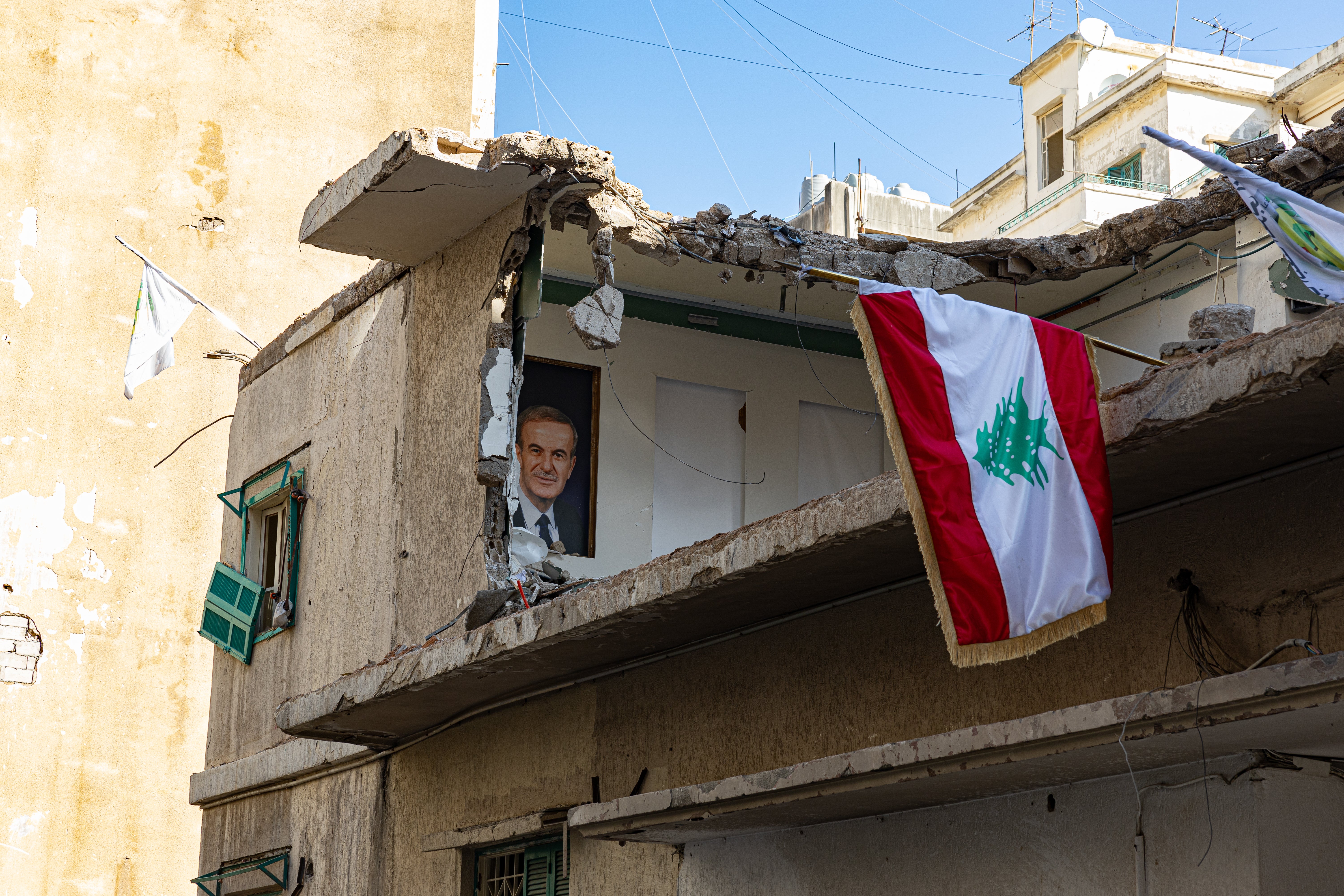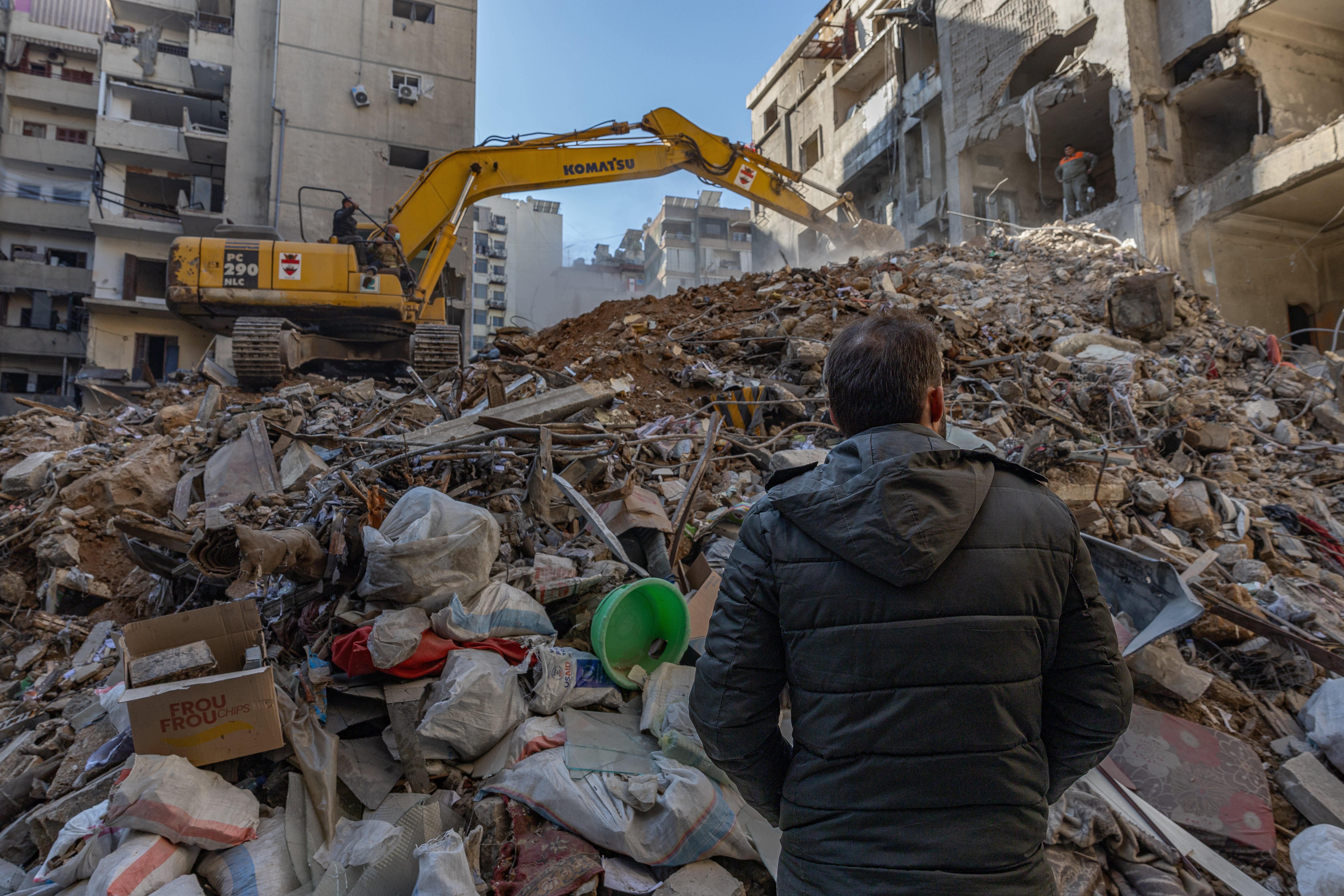‘Death is chasing us’: Syrian refugees flee Lebanon airstrikes straight into jaws of fresh war against Assad
Bel Trew and Rana Najjar speak to those who have tried to escape Israeli strikes, only to find themselves on the front of another conflict, and visit a refugee camp in Lebanon to speak to those who fear for their relatives
Your support helps us to tell the story
From reproductive rights to climate change to Big Tech, The Independent is on the ground when the story is developing. Whether it's investigating the financials of Elon Musk's pro-Trump PAC or producing our latest documentary, 'The A Word', which shines a light on the American women fighting for reproductive rights, we know how important it is to parse out the facts from the messaging.
At such a critical moment in US history, we need reporters on the ground. Your donation allows us to keep sending journalists to speak to both sides of the story.
The Independent is trusted by Americans across the entire political spectrum. And unlike many other quality news outlets, we choose not to lock Americans out of our reporting and analysis with paywalls. We believe quality journalism should be available to everyone, paid for by those who can afford it.
Your support makes all the difference.When Israeli airstrikes smashed into homes in a nearby village in southern Lebanon, Mariam, a Syrian refugee, packed her bags as quickly as she could and fled back to her home country.
More than a decade after the family had first escaped to Lebanon, they found themselves making the same treacherous journey in reverse. They paid smugglers hundreds of dollars for a gruelling three-day journey, risking arrest to get to Idlib province in the northwest of the country.
But before long, the mother of three found herself on a new front line. Insurgents launched a shock offensive, sweeping through some of northern Syria’s biggest cities and towns, including the one she had just fled to. The forces of president Bashar al-Assad, after a series of extraordinary retreats, have unleashed a punishing bombing campaign on everything within opposition-held territory.
“We escaped Lebanon to our village in Syria, Kansafra. But the war followed us here as well – an airstrike hit next to us a few days ago,” Mariam says from a tent in an area now nominally controlled by anti-Assad forces but under heavy regime bombardment. A neighbouring tent was struck just a few days ago, killing an entire family inside.
“My son wakes up crying at night from fear of the airstrikes. Our biggest worries are the Russian and Syrian planes bombing us. How can the fabric of a tent withstand a missile?
“The kids are always cold. We are so afraid. There’s no way to go back to Lebanon – the war has completely cut us off,” she adds. “We can’t leave at all. We are stuck.”

Across more than a year of clashes between Israel and the Lebanese militant group Hezbollah, an estimated 562,000 people fled Lebanon for Syria – more than 60 per cent of them Syrians, according to the United Nations.
Many of them have now found themselves trapped on the front lines of a new conflict as Syria’s largely stagnant 13-year-old civil war has erupted into fresh bloody battles with the shock offensive by opposition forces – led by the Islamist, once al-Qaeda-aligned group Hayat Tahrir al-Sham (HTS).
The latest target is Homs, Syria’s third largest city, with insurgents seizing two towns on the outskirts on Friday, positioning themselves for an assault on a potentially major prize in their march against Assad.
Two families interviewed by The Independent said male relatives had been arrested and disappeared upon re-entering Syria, either for political reasons or for conscription. Three teenagers who had fled to Syria but managed to return said they had to pay smugglers hundreds of dollars.
In a freezing tent in a refugee camp in Lebanon’s Bekaa Valley, Khadija, 45, cries into her headscarf as the situation in Syria deteriorates.
Two months ago, she sent her four daughters, including one who is just 17 years old and pregnant, to their uncle’s house in northeastern Syria to escape the bombing in Lebanon. An airstrike had flattened a building next to the refugee camp in Lebanon, sending sprays of shrapnel ripping through their tents.

But her daughters, now in Raqqa province, northeastern Syria, have not been contactable since the war escalated last weekend. The Lebanese border is mostly closed so they cannot come back.
“I don’t know what their fate is – they are my daughters, pieces of my heart. I don’t know what happened,” Khadija says, her voice cracking into sobs.
“Many people went back to Syria – they fled from death only to find death awaiting them. It’s as if death is chasing them,” adds her husband, Mohamed, 41.
Syria’s long conflict had largely reached a punishing stalemate four years ago – until the weekend when Turkish-backed Syrian rebels seized the country’s second-largest city, Aleppo, and the fouth-largest, Hama. After a lightning advance south they say they are aiming for Damascus. Homs, Syria’s great crossroads city, which links the capital Damascus to the north and coast, is key to that.
To the northeast, near where Khadija’s daughters are, clashes have also erupted. Kurdish-led Syrian Democratic Forces claimed to have captured seven villages from pro-government fighters, though regime media denies this.
Stuck in the middle are civilians desperately trying to find shelter after fleeing war over a decade ago and enduring more than a year of airstrikes and shelling in Lebanon.
In Lebanon, refugees who have stayed put are also facing a nightmare, with temperatures dropping and resources stretched thin due to the needs of hundreds of thousands of internally displaced Lebanese citizens, says Lisa Aboul Khaled, spokesperson for the United Nations Refugee Agency in Lebanon.

“They were already struggling before the war [between Lebanon and Hezbollah]. They had very few resources. This raises the question where will these people go? How will they continue their lives in such severe conditions?”
In Syria, meanwhile, Mercy Corps has warned of a “crisis within a crisis” for the displaced, particularly the northwest of the country and refugees. The renewed conflict is impacting supply chains. Prior to the current offensive, more than four million people in northwest Syria relied on aid agencies for basic humanitarian needs such as clean water and food.
“Now there are already food shortages and soaring food prices. The infrastructure in northwest Syria’s displacement camps is overstretched, and an influx of new arrivals will push limited resources past capacity,” the organisation said.
Back in Lebanon, the terrified relatives of Syrians who have crossed back into Syria spoke of their concerns about refugees being arrested and disappearing upon re-entering Syria, as well as the airstrikes and bombings on their towns and villages.
Ahmad, 30, a Syrian refugee in Beirut, said his mother, father and four siblings fled the Lebanese capital in September after Israeli bombs obliterated a house next to theirs and after a surge in racist attacks against Syrians.
Ahmad stayed behind to work while his family returned to their hometown just outside Hama, which the Syrian insurgents have taken control of in recent days.

“They are all hiding in the basement of the house, one of the only houses in the area that has a basement. So they are together with 25 people are crammed in there, sleeping head to toe, side by side, on the ground,” he tells The Independent.
His brother is missing – arrested by the Assad regime as soon as he crossed into Syria, his family think due to the fact he is of military age and conscription.
“The family is extremely scared. I’m terrified. They can only go above ground every few days to get a signal and message me,” Ahmad adds. “Yesterday, I couldn’t sleep. They bombed Hama. All I can do is check the news.”
Mourad, 53, a Syrian refugee living along the Lebanese border with Israel, said his neighbour – a 35-year-old father of three – was also missing. The neighbour had fled to Idlib when the war in Lebanon worsened, only for him to be arrested by military intelligence and sent to one of the most notorious prisons in Damascus.
“They are very scared. The wife and children are trapped in clashes around Idlib. The father is sick. He has asthma. He will not endure or survive torture in a Syrian prison.”
Some families have tried to return back to Lebanon but were reportedly turned away at the border. Three teenagers interviewed in Shatila refugee camp fled to Syria with their families but had to return to Lebanon when airstrikes pounded their homes. They had managed to return via dangerous smuggling routes.
“It took us three days. We slept in a home with no windows or doors – we burned garbage to stay warm,” said one 17-year-old boy.
“They forced five families into a single car, pushing us with their legs,” adds his 16-year-old sister.
Their 19-year-old friend said only she and her father managed to get back to Lebanon; the rest of her family stayed in the northeast.
“I’m really worried about them. Every day I message them. They bombed near them yesterday – it’s getting worse. It’s very dangerous for them to come back. It will cost a lot of money and is very risky,” she added.
Back in Idlib, Mariam sends photos of the tent she is now living in, saying food and water supplies are low.
“There’s no safety here at all. Even Lebanon doesn’t feel safe anymore. We have nowhere to go.”
In the Bekaa refugee camp, Khadija waits anxiously for any news of her beloved missing daughters.
“We fled one place only to meet death in another. Where can we go? Oh God, where can we go?”

Join our commenting forum
Join thought-provoking conversations, follow other Independent readers and see their replies
Comments